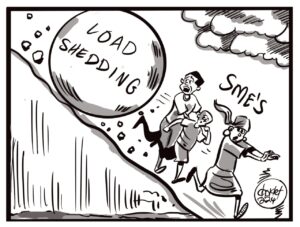CSOs and Media actors have called on government to release the draft cyber crimes bill to the public before it’s taken to parliament in order to allow citizens to agree on what ills the bill is expected to solve.
The organisations have noted that Zambia currently has enough laws to deal with cybercrimes and misdemeanours, which only needed to strengthened in order to safeguard the online democratic space.
In a statement signed by ZCSD executive director Lewis Mwape on behalf of MISA-Zambia and Bloggers of Zambia, Tuesday, Mwape observed that the country’s democracy, civil liberties and freedoms were under threat.
He further observed that rights to peaceful assembly and association had continued to experience sustained restrictions.
“Zambia’s democracy, civil liberties and freedoms as seen in the freedom of expression, association, assembly, right to share and receive information and right to hold to account its elected leadership is under threat. Although Article 20 of the Universal Declaration of Human Rights provides for the right to peaceful assembly and association, these rights have continued to experience, renewed or sustained restrictions. While civil society organisations in Zambia recognise the importance of the need to address online harassment, identity and data theft, local organisation demand that these should not hinder or further diminish freedoms of expression, association and peaceful assembly,” Mwape stated.
He stated that bills such as the Cyber Bill were not demand-driven.
Mwape added that Zambians had been demanding for more pressing bills such as Access to Information and Public Finance Management, among others, to be enacted first.
“The Minister of Transport and Communications, Mr. Brian Mushimba and state agencies like the ZICTA, Zambia Police among others, have in the past few months implied that Zambia was considering tabling before parliament a Cyber Bill. This cyber bill is aimed at regulating citizen’s online interaction on social media platforms such as Facebook, WhatsApp, Twitter among others. We the CSO have noted that: (I) The obscure and closed process to develop these Bills is anti-democracy and anti-civil liberties; (ii) These bills are not demand-driven as Zambians have been demanding that more pressing bills such asthe Access to Information since 2002, Public Finance Management, Budget and Planning and electoral legislations and reforms must be enacted first,” he stated.
Mwape stressed that Zambia currently had enough laws to deal with cybercrime and misdemeanour.
“Zambia currently has enough laws to deal with cybercrime and misdemeanour. The current laws in the Penal Code, the Computer Crimes and Misuse Act and the Copyright and Performance Rights Acts and the acts of private companies in protecting their privacy and data banks are enough to stop any cyber-crime from being planned and committed in Zambia. We also believe that the existing pieces of legislation on slander, defamation, publication of false information are sufficient to control and professionalize social media interactions and citizen journalism. What Zambia needs is the strengthening and democratisation of these laws to allow for the safeguarding of online democratic spaces,” he stated.
Meanwhile, Mwape stated that the process of enacting cyber laws should be halted to allow for wider consultation with stakeholders.
He called on government to release the draft cyber bill before it was taken to Parliament to allow for further debates among citizens.
“That the process of enacting cyber laws that restrict the civic and democratic on line space be halted to allow for wider consultation with all stakeholders. There has not been transparency and consultation in the designing of these proposed bills and we believe the laid down procedure in law development of a consultative process was not followed. Therefore, Government should release the draft cyber bill before it goes to parliament and allow for further debates among citizens so we are all agreed on what ills this bill is expected to solve,” he stated.
Mwape observed that the proposed new laws would hinder sharing of online resources and information which had helped many people.
“Any proposed cyber law should ensure the security and protection of an ordinary citizen’s enjoyment of online democratic space. The proposed new laws will hinder sharing of online resources and information which has helped many small-scale farmers, rural women and school children, who cannot afford the latest books and news sources, to have access to latest information in their areas of interest. The legislation also risks hindering poor and marginalised communities from accessing up to the minute news of the happenings outside their villages and communities, or to network with like-minded people and interests in the global village through social online networks,” stated Mwape.
“The proposed laws will also discourage community members from using social media and ICTs to engage with government leaders on the positive and negative effects of some policies, which engagements have led to the improvement of social service delivery and social accountability. The laws will also hinder health workers in rural areas from using telemedicine facilities to link up with specialists from within Zambian hospitals and hospitals abroad. The sponsors of these laws in government must embrace a consultative and transparent approach that enhances democracy and human rights, and does not take away the few civil liberties that we have been left with.”












